Daily Current Affairs 1 July 2021 – Gkseries

Current Affairs is the most important area in all competitive exams. But the difficulty level is very high. That’s why; many aspirants get confused, how to select Current Affairs for Preparation of Competitive Examination? In this Post, Daily Current Affairs 1 July 2021, we have tried to cover each and every point and also included all important facts from National/ International news that are useful for upcoming competitive examinations such as UPSC, SSC, Railway, State Govt. etc.
Daily Current Affairs 1 July 2021
President laid foundation stone for Ambedkar memorial in Uttar Pradesh
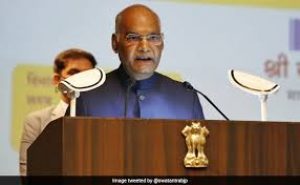
President of India Ram Nath Kovind recntly laid the foundation stone of a memorial for Bhimrao Ambedkar in Uttar Pradesh, consisting of a statue and a cultural centre.
The memorial for Ambedkar, that will come up in Aishbagh over 1.34 acre, will consist of a statue and a cultural centre which will also house a library, a musuem, to encourage research about the Dalit icon and the father of the Constitution.
It will also consist of a dormitary and a cafeteria for tourists, said a presentation by the state government on the foundation stone laying ceremony.
In February, prime minister Narendra Modi had also laid the foundation stone of a statue of King Suheldev in Bahraich, which was seen as a move by the BJP in UP to associate closely with the OBC Rajbhar community who consider themselves descendants of the warrior king.
PM of Sweden resigns in the wake of no-confidence vote

The Prime minister of Sweden has resigned after seven years in power, having lost a vote of confidence last week over a controversial plan to ease rent controls for new-build apartments.
Lofven on June 21 became the first Swedish leader ever to lose a confidence vote in parliament after the Left Party withdrew its support for his centre-left government over its housing market plans.
A 63-year-old former union boss and welder, Lofven headed a fragile minority coalition with the Greens since 2018, relying on support from two small centre-right parties and the Left Party.
The centre-left and centre-right blocs are now evenly balanced in parliament and opinion polls show a general election might not change the picture.
It took Lofven four months to form a government after Sweden’s last general election, in 2018, which returned inconclusive results.
MoU between India and Nepal in the field of Health Research
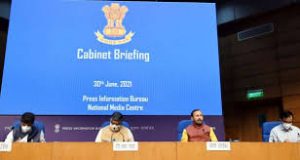
The Union Cabinet approved the Memorandum of Understanding (MOU) signed between Indian Council of Medical Research (ICMR), India and the Nepal Health Research Council (NHRC), Nepal.
Each Party shall fund the components of the research approved under this MoU to be conducted in their country or may apply jointly for third party funding.
For the exchange of scientists under approved collaborative projects, the sending Party shall bear the cost of travel of visiting scientists whereas the receiving Party will provide the accommodation and living expenses of the scientist/researcher.
Commitment of funds for workshops/meetings and research projects may be decided from time to time as per the funds available at that time.
The objectives of this MOU are collaboration on joint research activities of mutual interest such as cross-border health issues, Ayurveda/traditional medicine and medicinal plants, climate change and health, non-communicable diseases, mental Health, Population based cancer registry, tropical diseases, Influenza, Clinical Trial Registry, health research ethics, Capacity building through exchange of knowledge, skills tools and fellows and Collaboration for adoption of tools, guidelines, protocols and best practices related to health research.
MoU between India and Myanmar in the field of health research
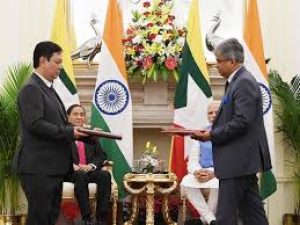
The Union Cabinet approved the Memorandum of Understanding (MOU) signed between Indian Council of Medical Research (ICMR), India and the Department of Medical Research (DMR), Ministry of Health and Sports of Myanmar.
The objective of this MoU is to build on the health research relationship in the topics of mutual research. The main objectives are:
- Elimination of infectious diseases (to be decided mutually)
- Development of network platform of emerging and viral infections
- Training /capacity building in research methodology management, clinical trials, ethics etc.
- Harmonization of regulatory mechanism
Refurbishing Personnel Administration and Governance Reforms
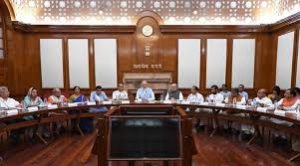
The Union Cabinet approved the Memorandum of Understanding (MoU) signed between Department of Administrative Reforms and Public Grievances, Ministry of Personnel, Public Grievances and Pensions, Government of India and the Public Service Commission, Office of the President, Republic of The Gambia on Refurbishing Personnel Administration and Governance Reforms.
The MoU will help in understanding the personnel administration of both the countries and enable in improving the system of governance through replicating, adapting and innovating some of the best practices and processes.
Each country will be responsible for its expenditure in connection with the implementation of this MoU. Actual amount of expenditure will depend on the activities that may be undertaken under the MoU.
Government of India has taken up a goal of quantum shift in delivery of Government Services across the country and also aims to further Government’s efforts at revamping of Personnel Administration and Governance Reforms which is relevant in the context of the goal of ‘Minimum Government with Maximum Governance’.
Govt extended last date of Registration under Aatmanirbhar Bharat Rojgar Yojana
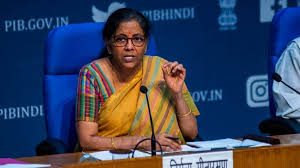
Government of India extended the date for registration of beneficiaries for availing the benefit under Aatmanirbhar Bharat Rojgar Yojana (ABRY) for another nine months i.e. from 30th June, 2021 to 31st March, 2022.
Consequent upon this extension, it is expected that 71.8 lakh employment will be generated in the formal sector as against the earlier projection of 58.5 lakh.
As on 18.06.2021, benefit amounting to Rs.902 crore has been given to 21.42 Lakh beneficiaries through 79,577 establishments under ABRY.
Estimated expenditure of the scheme including the expenditure for the proposed extended period of registration upto 31.03.2020 will be Rs.22,098 crore.
This scheme is being implemented through Employees Provident Fund Organization (EPFO) to reduce financial burden of the employers of various sectors/industries and to encourage them to hire more workers.
BharatNet implementation through Public Private Partnership Model in 16 States
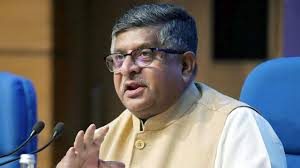
Centre accorded approval for revised implementation strategy of BharatNet through Public Private Partnership mode in 16 States of the country.
BharatNet will now extend upto all inhabited villages beyond Gram Panchayats (GPs), in the said States.
The revised strategy also includes creation, upgradation, operation, maintenance and utilization of BharatNet by the concessionaire who will be selected by a competitive international bidding process.
BharatNet PPP Model will bring in following consumer friendly advantages:
- Use of innovative technology by the Private Sector Provider for the consumers;
- High quality of service and Service Level to consumers;
- Faster deployment of network and quick connectivity to consumers;
- Competitive tariffs for services;
- Variety of services on high-speed broadband including Over the top (OTT) services and multi-media services as part of packages offered to consumers, and
- Access to all online services.
Loan Guarantee Scheme for Covid Affected Sectors (LGSCAS)
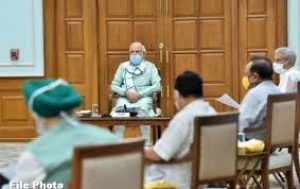
Centre approved Loan Guarantee Scheme for Covid Affected Sectors (LGSCAS) enabling funding to the tune of Rs. 50,000 crore to provide financial guarantee cover for brownfield expansion and greenfield projects related to health/ medical infrastructure.
The Scheme would be applicable to all eligible loans sanctioned up to 31.03.2022, or till an amount of Rs. 50,000 crore is sanctioned, whichever is earlier.
The LGSCAS has been formulated as a specific response to an exceptional situation the country has witnessed due to lack of adequate health infrastructure in the light of second wave of Covid-19.
The approved scheme is expected to help the country in shoring up its much-needed healthcare infrastructure along with creating more employment opportunities.
The main objective of LGSCAS is to partially mitigate credit risk (primarily construction risk) and facilitate bank credit at lower rates of interest.
Enhance corpus of Emergency Credit Line Guarantee Scheme (ECLGS)
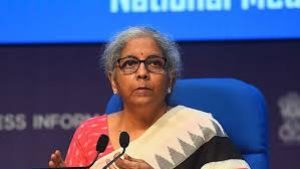
Cabinet has approved additional funding up to Rs. 1,50,000 crore under Emergency Credit Line Guarantee Scheme (ECLGS).
It is a continuing scheme. The Scheme would be applicable to all eligible loans sanctioned under Guaranteed Emergency Credit Line (GECL)till 30.09.2021, or till an amount of rupees four lakh fifty thousand crore is sanctioned under the GECL, whichever is earlier.
lt is a continuing scheme and recently, on account of the disruptions caused by the second wave of COVID 19 pandemic to businesses across various sectors of the economy, Government has further enlarged the scope of ECLGS.
The enhancement is expected to provide much needed relief to various sectors of the economy by incentivizing lending institutions to provide additional credit of up to Rs. 1.5 lakh crore at low cost, thereby enabling business enterprises to meet their operational liabilities and continue their businesses.
Besides supporting MSMEs to continue functioning during the current unprecedented situation, the Scheme is also expected to have a positive impact on the economy and support its revival.
Revamped Distribution Sector Scheme approved by Centre
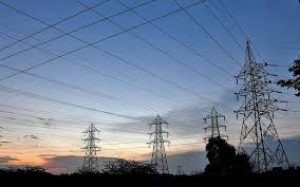
Central government of India approved a Reforms-based and Results-linked, Revamped Distribution Sector Scheme.
The Scheme seeks to improve the operational efficiencies and financial sustainability of all DISCOMs/ Power Departments excluding Private Sector DISCOMs by providing conditional financial assistance to DISCOMs for strengthening of supply infrastructure.
The assistance will be based on meeting pre-qualifying criteria as well as upon achievement of basic minimum benchmarks by the DISCOM evaluated on the basis of agreed evaluation framework tied to financial improvements.
Implementation of the Scheme would be based on the action plan worked out for each state rather than a “one-size-fits-all” approach.
Objectives of the Scheme:
- Reduction of AT&C losses to pan-India levels of 12-15% by 2024-25.
- Reduction of ACS-ARR gap to zero by 2024-25.
- Developing Institutional Capabilities for Modern DISCOMs
- Improvement in the quality, reliability, and affordability of power supply to consumers through a financially sustainable and operationally efficient Distribution Sector.
Delimitation Commission to visit Jammu & Kashmir
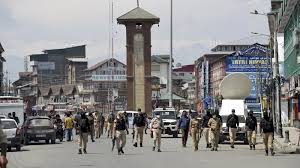
The Delimitation Commission under the Chairpersonship of Justice (Retd.) Mrs. Ranjana Prakash Desai has decided to visit the Union Territory of Jammu & Kashmir from 6th July, 2021 to 9th July, 2021.
The Delimitation Commission was constituted in March 2020 and its term was extended by another year in March 2021 in view of the on-going pandemic.
Third Member of the Commission is the State Election Commissioner of Union Territory of Jammu & Kashmir. The Commission also has five Associate Members nominated by the Speaker, Lok Sabha.
The Commission already had series of meetings related to data/ map of the Districts/ Constituencies related to census 2011.
Earlier, it invited all Associate Members for interaction, which were participated by two of the Associate Members.
A number of representations has also been received on various aspects concerning delimitation from civil societies and members of public from the Union Territory.
The Commission has already taken note of all such suggestions and directed that these may be deliberated further in the context of ground realities concerning delimitation.
Index of Eight Core Industries (ICI) May, 2021

The Office of Economic Adviser, Department for Promotion of Industry and Internal Trade released the Index of Eight Core Industries (ICI) for the Month of May, 2021.
ICI measures combined and individual performance of production in selected eight core industries viz. Coal, Crude Oil, Natural Gas, Refinery Products, Fertilizers, Steel, Cement and Electricity.
The Eight Core Industries comprise 40.27 percent of the weight of items included in the Index of Industrial Production (IIP).
The combined Index of Eight Core Industries stood at 125.8 in May 2021, which increased by 16.8 per cent (provisional) as compared to the Index of May 2020.
The production of Coal, Natural Gas, Refinery Products, Steel, Cement and Electricity industries increased in May 2021 over the corresponding period of last year.
Final growth rate of Index of Eight Core Industries for February 2021 is revised to (-) 3.3% from its provisional level (-) 4.6%. The growth rate of ICI during April-May 2021-22 was 35.8% (P) as compared to the corresponding period of last FY.
Center reduces the duty on Crude Palm Oil (CPO) by 5%

Government of India has reduced the duty on Crude Palm Oil (CPO) by 5% in order to bring relief to the consumers and reduce the edible oil prices.
The major edible oils consumed in the country are mustard, soyabean, groundnut, sunflower sesame oil, niger seed, safflower seed, castor and linseed (primary source) and coconut, palm oil, cottonseed, rice bran, solvent extracted oil, tree & forest origin oil.
The total domestic demand of edible oils in the country is approximately 250 LMT per year. Around 60% of the edible oils consumed in the country is met through imports.
Palm oils (Crude + Refined) import constitutes around 60% of the total edible oil imported, out of which 54% is imported from Indonesia and Malaysia.
As the country has to depend heavily on imports to meet the gap between demand and supply, the International prices have an impact on domestic prices of edible oils.
100th anniversary of founding of Chinese Communist Party
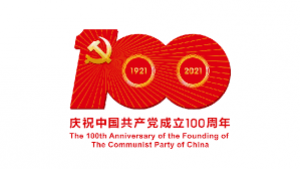
China will celebrate the 100th anniversary of its ruling party “the Communist Party” founding on 1st July 2021.
The CPC was founded by Mao Zedong and his associates in 1921.
It fought bloody wars at home both against political rivals and the Japanese occupation and took over power in 1949 forming the People’s Republic of China (PRC).
The CPC has undergone a total ideological makeover after Mao’s death in 1976.
On the brink of collapse after Mao’s disastrous ideological experiments like the 1958 “Great Leap Forward” and the 1966 ”Cultural Revolution”, which resulted in the deaths of over 1.5 million people, the CPC was revived by moderate “paramount leader” Deng Xiaoping.
Deng replaced Mao’s hardline Marxism with a pragmatic ideology of “Socialism with Chinese Characteristics” which supposedly helped China to emerge as the second-largest economy of the world.
International Asteroid Day 2021

International Asteroid Day is observed on 30 June each year to raise awareness about the harmful effects of asteroids on Earth and the measures that should be taken about the risks and impacts.
This year’s International Asteroid Day marks the 113th Anniversary of the largest recorded asteroid impact that took place near the Tunguska River in remote Russian Siberia.
According to scientists, who study Near-Earth Objects or NEOs, most asteroids are irregularly shaped. They are often pitted or have tiny craters.
In December 2016, the United Nations General Assembly adopted a resolution declaring June 30 as the International Asteroid Day to raise public awareness about the asteroid impact hazard.
Asteroids are small rocky bodies orbiting the Sun. They are sometimes called minor planets. According to the NASA, asteroids are rocky remnants left over from the early formation of our Solar System about 4.6 billion years ago.
There are currently 10,97,106 known asteroids, says the NASA. Asteroids are different from meteors, which are small bodies of matter that appear as a streak of light when entering the Earth’s atmosphere.